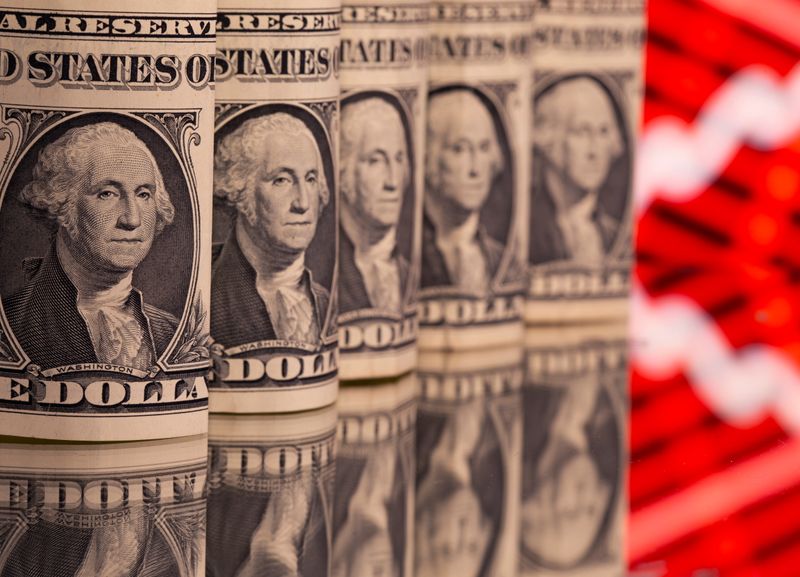By Hideyuki Sano
TOKYO (Reuters) – The dollar held near three-week highs against a basket of major currencies on Friday after a raft of strong U.S. economic data rekindled expectations for earlier policy tightening by the U.S. Federal Reserve.
U.S. retail sales unexpectedly increased in August, rising 0.7% from the previous month despite expectations of a 0.8% fall, while business sentiment survey by the Philadelphia Fed also showed a big improvement.
“Yesterday’s data were pretty strong across the board,” said Yujiro Goto, chief currency strategist at Nomura Securities. “The markets had been worried that consumption would be weak in August because of the Delta variant. But retail sales were surprisingly strong.”
The figures helped to curb cautious views on the U.S. economy sparked after tame consumer inflation reading and soft job growth data published earlier this month, helping to revive expectations for early Fed tapering.
The dollar index stood at 92.880, near Thursday’s three-week high of 92.965.
The euro hit a three-week low of $1.17505 overnight and last traded at $1.1765.
The common currency also hit a three-week low of 128.61 yen and one-month low of 0.8501 British pound, before recovering some losses.
The dollar’s strength was most pronounced against other safe-haven assets, such as the Swiss franc and precious metals.
The Swiss franc hit a five-month low of 0.92785 to the dollar, falling 0.89% on Thursday.
Gold stood at $1,754.4 per ounce after 2.3% falls in the previous session while silver changed hands at $22.88 per ounce having lost 3.7% on Thursday, back near the eight-month lows touched in August.
The dollar bounced back to 109.72 yen, having gained 0.34% on Thursday and off Wednesday’s six-week low of 109.11.
The yen has so far shown limited reaction to ruling Liberal Democratic Party’s (LDP) leadership race, which will formally kick off on Friday ahead of Sept. 29 vote. The LDP’s parliamentary dominance means the party’s new leader will become prime minister.
Many investors see vaccine minister Taro Kono as a front-runner, followed by former foreign minister Fumio Kishida and former internal affair minister Sanae Takaichi.
“The world’s major macro players are not expecting big policy shifts. A lack of moves in the yen is a testament to that,” said Hiromichi Shirakawa, vice chairman and chief economist for Credit Suisse (SIX:CSGN) in Japan.
Still, former internal affairs minister Seiko Noda’s decision to join the race on Thursday increased uncertainties because that could mean no single candidate wins on the first round and the election goes to a run-off, which could work against Kono.
Elsewhere, sterling eased to $1.3795 while the Australian dollar traded at $0.7294 after touching a three-week low of $0.7274 in the previous session.
The Chinese yuan licked wounds after Thursday’s 0.4% fall.
In offshore trade, the yuan last traded at 6.4530 to the dollar, pressured by growing worries about China’s real estate sector as investors fear property giant China Evergrande could default on its coupon payment next week.
Cryptocurrencies stepped back from this week’s high with bitcoin traded at $47,663 and ether at $3,552.



